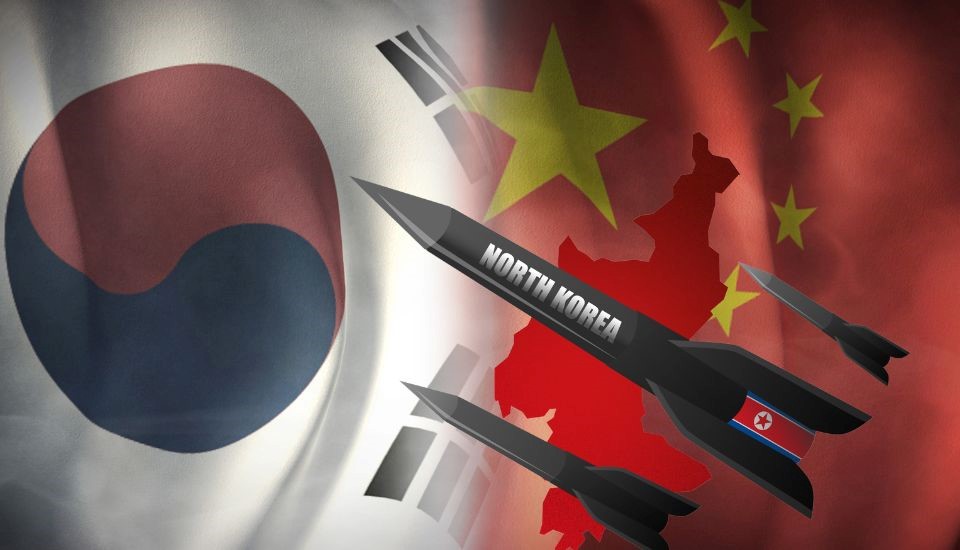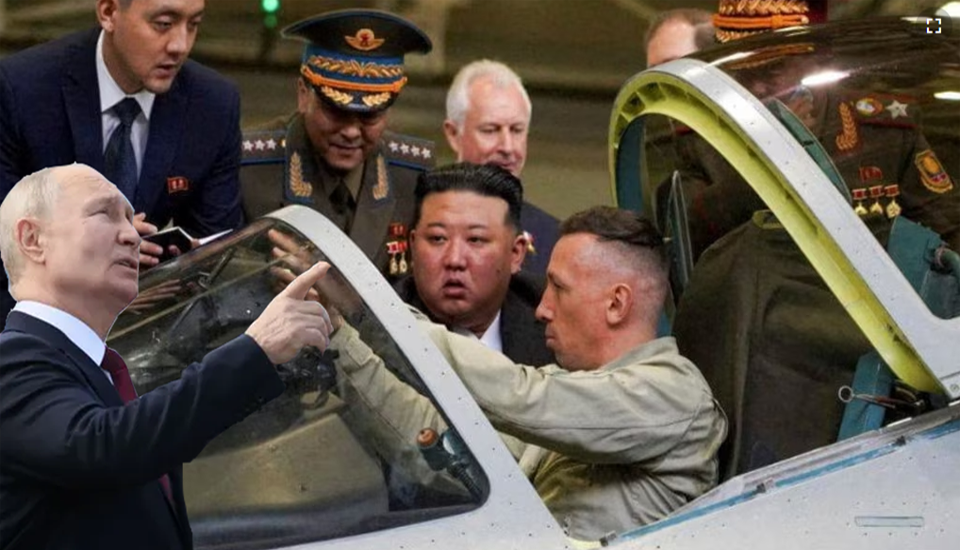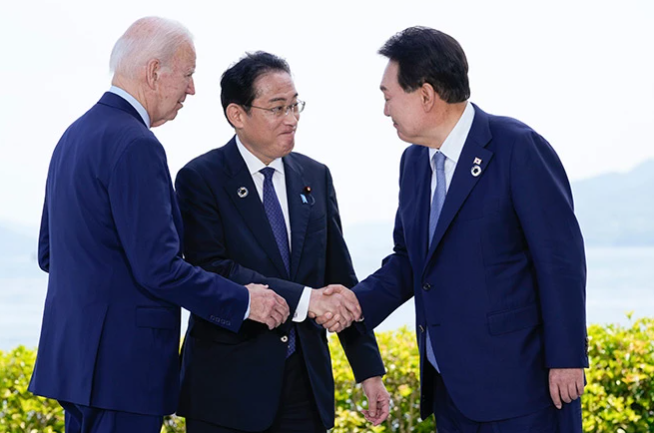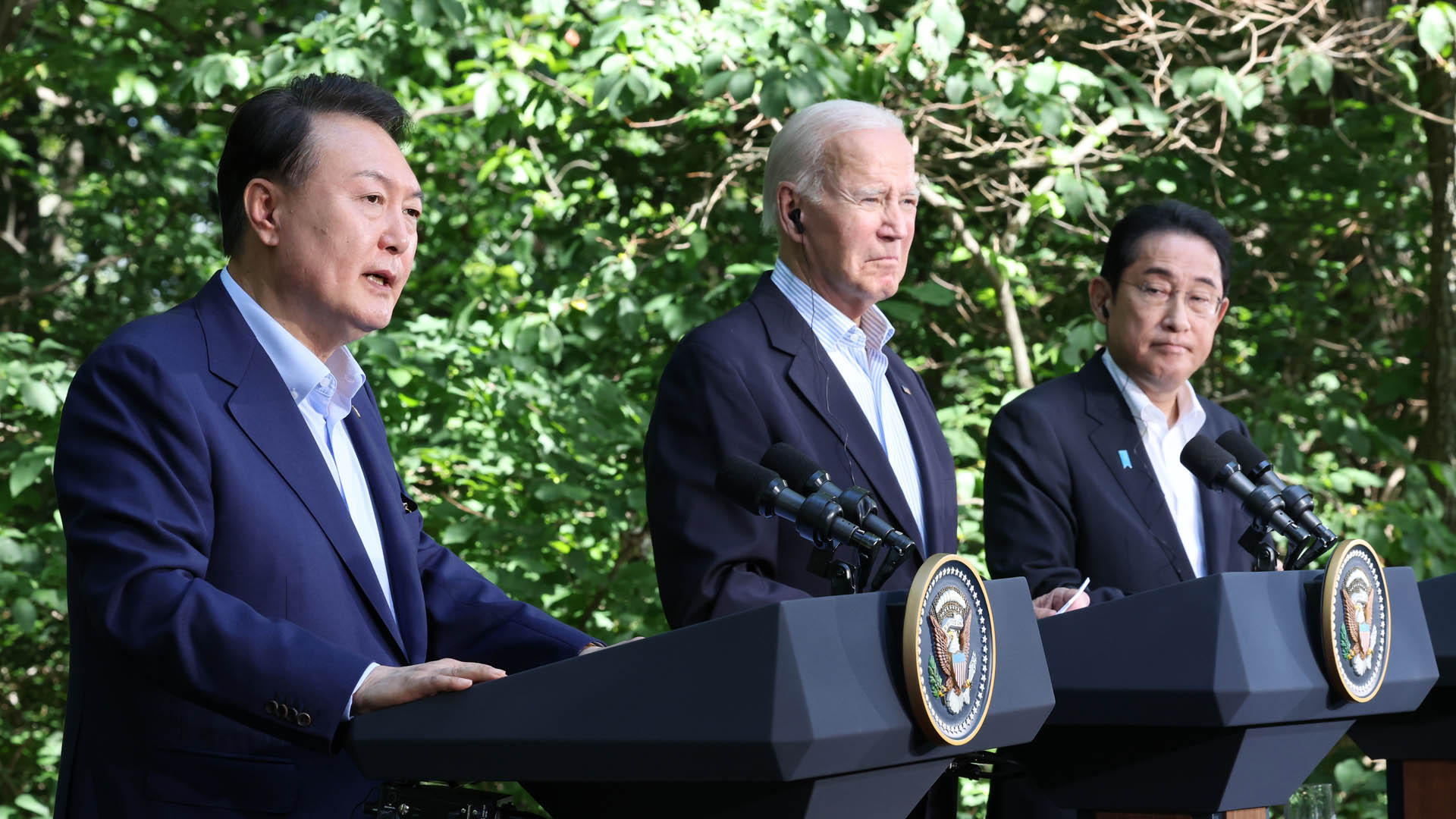
Chinese Perspective on Policy Solutions for the DPRK Nuclear Problem
Research Reviews | October 23, 2023
Center for Korean Studies
Fudan University
Fudan University’s Center for Korean Studies discusses ROK-China cooperation measures for crisis management on the Korean Peninsula amidst intensifying U.S.-China strategic competition. While the ROK-U.S. alliance is strengthening, the Center recommends that South Korea pursue multilateral diplomacy based on pragmatism and persuade the U.S. to draft a denuclearization action plan acceptable to both Koreas. For China, the Center urges it to establish strategic communication channels with North Korea to prevent provocations while enhancing ROK-China bilateral relations.
The risk of an inter-Korean crisis has increased significantly, and recent missile launches by North Korea and Chairman Kim Jong-un’s hardline remarks toward South Korea are seen as showing North Korea’s will to approach relations with South Korea and the U.S. in a new Cold War style.
I. South Korea’s Foreign Policy in the Context of Strengthening ROK-U.S. Alliance
Current Yoon Suk Yeol government’s key foreign policy keyword is “United States,” and it recognizes that cooperation with the United States, Japan, and European countries should be strengthened in the future. The ROK-U.S. alliance is expanding from the existing military alliance to an economic and technological alliance and a comprehensive alliance.
This can be interpreted as meaning that South Korea will actively participate in building a new Indo-Pacific regime led by the U.S. There is a high possibility that Korea’s participation in the U.S. Indo-Pacific regional alliance system will further expand. South Korea has already decided to participate in the Indo-Pacific Economic Cooperation, and IPEF has also confirmed its membership, so it is highly liable to actively participate in Quad and AUKUS.
Amidst strengthening ROK-U.S. alliance, one of the biggest challenges that ROK will face in the future would be its relations with China and the North Korean issue. If South Korea actively participates in the U.S. Indo-Pacific system, there is a possibility that military security issues may arise between South Korea and China over Taiwan, the South China Sea, and the West Sea.
Regarding the North Korean issue, the South Korean government maintains its position that it will support North Korea if it gives up its nuclear program first, but will seek to strengthen the ROK-U.S. alliance to prevent North Korea’s provocation. This may lead to additional THAAD deployment issues. The introduction of strategic assets from the U.S. may invite conflicts in South Korea-China relations.
Yoon administration’s China policy is active, but cooperation with the U.S. is being strengthened. It can be said that it is a big change that the South Korean government no longer relies on China but on the ROK-U.S. alliance to resolve issues on the Korean Peninsula, and it appears to reduce China’s strategic weight on the Korean Peninsula.
II. New Sino-Korean Relations Initiative
The South Korean government claimed that it will establish a cooperative mechanism that can manage pending issues and potential conflict factors between Korea and China, including the North Korean nuclear issue, through “regularization” and “institutionalization” of high-level strategic dialogue between Korea and China.
In particular, the South Korean government holds “high-level strategic dialogue” twice a year between the foreign ministers of South Korea and China. Also, it hopes to promote various ‘2+2’ strategic dialogues at the vice-ministerial level, such as diplomacy and defense, diplomacy and economy, diplomacy, science, and technology.
These are significant in that they strengthen mutual trust through communication between South Korea and China, expand the space for dialogue and cooperation, and create a substantial “strategic cooperative partnership.” They intend to create an equally prosperous and healthy bilateral relationship between South Korea and China.
Promoting summit diplomacy is also a key to enhancing mutual trust, and complementing the strategic dialogue mechanism is a safety net. Strategic dialogues at each level between South Korea and China need to be upgraded and supplemented. It is necessary to promptly upgrade the 2+2 strategic dialogue that is the most important diplomacy and defense dialogue from the current vice-ministerial level to the ministerial level in order to build stable strategic trust. There is also a need for in-depth communication and coordination on important economic safety issues, such as linking development strategies between the two countries and stabilizing industrial and supply chains. The strategic dialogues should be helpful in managing and controlling the differences and contradictions between the parties.
Moreover, the two countries should place special emphasis on include those related to history, maritime borders, and the air defense identification zones (ADIZs). These issues are readily exaggerated by the media and affect the feelings of the people of both countries, so the parties involved should be rational and prudent when dealing with them. The governments of the two countries have already established various emergency communications networks to deal with unexpected and sensitive incidents, and at the same time, they should bring sensitive issues under control by promoting strategic mutual trust. In deepening mutually beneficial cooperation, the two countries should free themselves from the constraints of conventions, jointly explore new fields, and foster new areas of growth in economic and trade cooperation.
III. China’s Solution to the Nuclear Issue
Faced with “major changes unseen in a century,” as President Xi Jinping noted, China should fully consider its mid- and long-term strategic interests and put its gains and losses on the Korean Peninsula into the framework of analyzing China’s interests. The nuclear issue on the Korean Peninsula is not simply a matter of denuclearization, but is connected to an omnidirectional issue including Northeast Asia and East Asia strategies and the general trend of China-U.S. relations.
China needs to build a new type of North Korea-China relations. It is necessary for the DPRK and China significantly to upgrade their political relations and launch “high-level strategic communication” to address psychological unease and strategic demands on both sides. China needs to actively help the DPRK be assured of its survival and break the difficulties of sanctions on both sides.
China and the North also need to raise “military security cooperation” again and establish a solid defense line on the Korean Peninsula. China should flexibly utilize North Korea’s role in diplomacy and resolve long-standing problems on the Korean Peninsula.
The concrete solution is to integrate various mechanisms of China and North Korea, establish an international organization with enforcement power such as the Shanghai Cooperation Organization (SCO), and build mechanisms that focus on pragmatic solutions. As comprehensive strategic partners with South Korea, China needs to think about how to invigorate its counterpart’s role as a bridge and make China’s global strategy more flexible and sustainable. China should play its role in the denuclearization issue to serve the expansion and sustainability of its global strategy.
IV. Suggestions and Countermeasures
1. Advice for South Korea
South Korea is advised to establish a basic external strategic framework that takes into account the overall situation and conditions and make use of its geopolitical position to conduct external strategy.
It is necessary to secure military stability based on the principle of peaceful resolution. Korea should expand its market and establish an international order based on the norms of multilateralism, and it should be sensitive to changes in the international order. South Korea should think pragmatically about how to combine self-reliance and balance of power. Instead of aiming at anti-China or the Korea-U.S. alliance itself, it needs a policy that focuses on the survival, peace and prosperity of South Korea.
South Korea should respect its strategic cooperative partnership with China, refrain from turning hostile, and strengthen communication and cooperation with China in non-strategic and non-traditional security fields. South Korea should focus on strengthening its security posture to cope with the dramatic changes in the security situation in Northeast Asia. In emerging security areas (health, cyber, environment, climate change), cooperation with the United States and China is possible, and therefore the possibility of cooperation should be explored.
Korea should go beyond one-sided diplomacy, develop core diplomacy that actively promotes multilateralism, and play a key role in promoting a new international order. Instead of focusing on value diplomacy, Korea should conduct diplomacy based on pragmatism, freedom from ideology, and public consensus.
South Korea is advised to persuade the U.S. to jointly draw up an action plan for denuclearization of North Korea that can satisfy the two Koreas and the U.S. as a new approach. The ‘audacious initiative’ could be a good starting point.
2. Advice for China
The security situation on the Korean Peninsula is somewhat unpredictable, so maintaining the status quo or preventing a worse situation has emerged as an urgent priority for security on the Korean Peninsula. The disintegration and changes of the situation on the Korean Peninsula have also had an impact on China’s relations with the United States, South Korea, North Korea, and Japan, affecting China’s strategic development and greatly delaying its strategic actions.
At the strategic level, North Korea could be used to break the U.S. siege in Northeast Asia. China’s strategic deterrence should be delivered by fully utilizing North Korea’s strategic situation. China must realize its strategic objectives by resolving the North Korean nuclear issue, creating atmosphere for cooperation and building its regional partnership in Northeast Asia.
China should play a constructive role in the Korean Peninsula by providing a new blueprint and a new way of thinking about regional issues. It should build and strengthen the sense of bond between the DPRK and China in various fields, strengthen the communication between the ROK and the DPRK, and contribute to China’s international image.
China needs to strengthen communication with North Korea and prevent extreme actions on the Korean Peninsula. If North Korea conducts another nuclear test and China blocks new sanctions at the UN Security Council, China, which was affected by the Russia-Ukraine war, will be in an even more awkward position. If new sanctions are added, they may affect China’s aid and exchanges with North Korea. China should take this situation as an opportunity to encourage North Korea to avoid causing unnecessary problems, focus on improving people’s livelihood and controlling the pandemic, and to accept China’s cooperation.
To take proactive action towards Korea, China needs to deepen the bilateral relations with South Korea. It is necessary to actively exercise China’s affinity and influence by mobilizing strategic economic and political power. China should also change its original stance and take a new friendly diplomacy toward Korea. China should present a new chapter of its diplomatic strategy and demonstrate its affinity.
North Korea must be “managed” as means. At the strategic level, obstacles to dealing with the North Korean issue must be removed. Politically, strategic communication channels should be established with the DPRK, and permanent mechanisms of Party, government, military and society 4+4 (i.e., Party, military, government, social and personnel exchanges) should be set up. It will comprehensively guide the building of a new type of China-DPRK relations with interparty exchanges as a whole, military exchanges as a basic basis, government relations as a guide, and social and people-to-people exchanges as its substance.
■ The Center for Korean Studies(CKS) at Fudan University was established in 1992 and has officially conducted various academic research activities and events since 1994. At present, Associate Professor Zheng Jiyong takes up the post of Director, with Professor Xing Liju as Deputy Director of the CKPS.
■ Typeset by Jisoo Park, Research Associate
For inquiries: 02 2277 1683 (ext. 208) | jspark@eai.or.kr
Security and External Relations

Analyzing the Russia-DPRK Summit and Its Outcome
Yoonhee Kang | October 16, 2023

Dealing with North Korea Beyond the Korean Peninsula: Japan’s Perspective on a New Indo-Pacific Geopolitical Trend
Kei Koga | September 27, 2023

The Camp David Trilateral Summit Expands Trilateralism Beyond North Korea
Scott Snyder | September 21, 2023
LIST